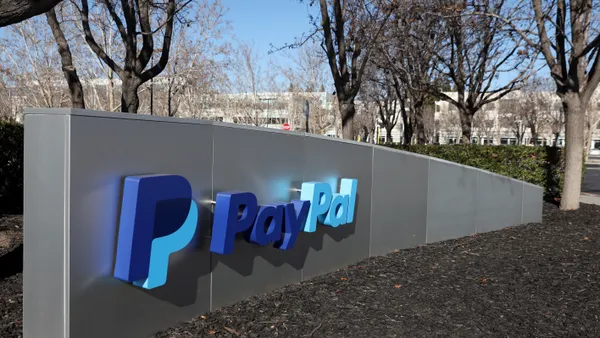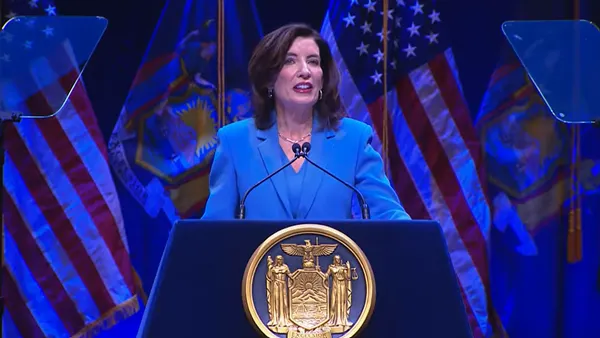Dive Brief:
- Card network Visa has expanded its board of directors from 11 to 12 members by appointing Pinterest CEO Bill Ready, the company said in a press release and regulatory filing last week.
- Ready was elected to the post by the board and qualifies as an “independent” director, effective Sept. 29, joining the board’s finance and nominating and corporate governance committees, according to the filing with the Securities and Exchange Commission. Ready’s term will expire at next year’s annual meeting, according to the filing.
- “Bill has been a transformative leader in digital payments, pioneering breakthrough payment products that have fundamentally changed how consumers and businesses transact,” Visa CEO Ryan McInerney said of Ready in the Sept. 29 release. “His vision, expertise and counsel will be invaluable to Visa as we enter an exciting new era of payments and dream, design and build the future of commerce.”
Dive Insight:
Visa operates the largest U.S. network for card transactions, and one of the largest in the world. The credit and debit card giant didn’t say why it chose to expand its board, and spokespeople didn’t respond to a request for comment on that question.
In addition to holding his Pinterest CEO post since 2022, Ready brings experience to the board from multiple past payments industry positions during his career. They include being a president of commerce and payments at tech giant Google; chief operating officer of digital payments pioneer PayPal Holdings; and CEO of payments software company Braintree and its peer-to-peer payments unit Venmo, according to his LinkedIn profile. PayPal acquired Braintree and Venmo in 2013.
Ready was also formerly president of iPay Technologies, which was acquired by Jack Henry & Associates in 2010 for $300 million.
The Pinterest CEO also serves on the boards of the cookware retailer Williams-Sonoma and human resources services provider ADP, according to his LinkedIn profile.

Visa is expanding its board as it adapts to a fast-changing payments sphere, increasingly shaped by a new era of digital payments options, from digital wallets to cryptocurrencies to artificial intelligence-driven agentic shopping. It has delved into some of those new areas, including developing stablecoin plays for cross-border transactions and creating agentic tools for that new e-commerce realm.
The San Francisco-based company also is grappling with various legal challenges, including an antitrust lawsuit over its debit card practices lodged against it by the Justice Department last year. A federal judge granted a pause requested by DOJ attorneys in that case last week because of the U.S. government closure.
Separately, it’s also grappling with a decades-old lawsuit filed by merchants who contend they were overcharged with respect to card transaction fees imposed by the company. Last year, a federal judge ruled that a tentative settlement of that case fell short with respect to a legal stipulation that plaintiffs in such class actions – this one pitting merchants against Visa and its rival Mastercard – be treated equitably relative to each other.
Visa’s annual meeting generally takes place just a few months from now, in January, and it’s possible that Ready’s term could be extended at that time. Visa also didn’t respond to a question on that issue.














